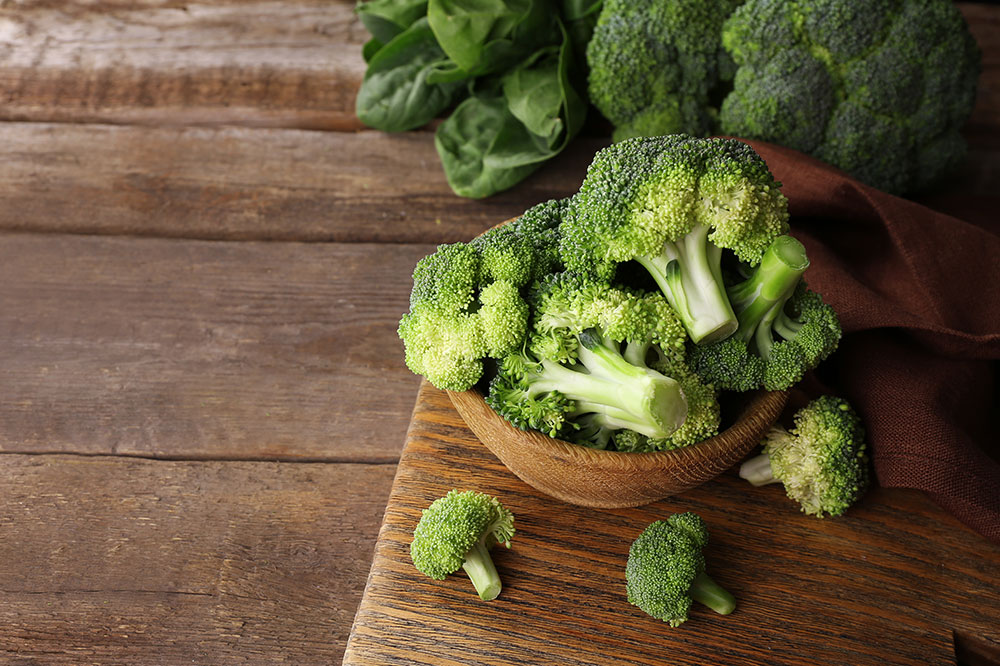Effective Dietary Strategies to Manage Excessive Sweating
This detailed guide explores effective dietary strategies to manage excessive sweating, emphasizing foods to include like hydrating fruits, vegetables, and healthy fats, while advising to limit processed and spicy foods. Proper nutrition, combined with medical treatments, can significantly improve life quality for hyperhidrosis sufferers by regulating body temperature and reducing sweat episodes safely and naturally.

Effective Dietary Strategies to Manage Excessive Sweating
Excessive sweating, medically known as hyperhidrosis, affects many individuals worldwide, causing them to sweat excessively regardless of environmental conditions or physical activity levels. This condition can significantly impact daily life, leading to discomfort, embarrassment, and social anxiety. While medical interventions, such as medications, Botox injections, or surgery, can help alleviate symptoms, dietary modifications offer a natural and accessible approach to managing hyperhidrosis effectively. Proper nutrition can influence body temperature regulation and sweat production, providing a complementary strategy for those seeking relief. This comprehensive guide explores essential foods to incorporate into your diet and foods to avoid to help control excessive sweating and improve overall comfort.
Incorporating Hydrating Fruits and Vegetables
One of the most effective dietary measures for reducing excessive sweating involves increasing the intake of hydrating foods rich in water content. These foods not only help maintain hydration but also assist in cooling the body from within, reducing the need for excessive perspiration. Fruits such as watermelon, grapes, strawberries, and oranges are high in water, vitamins, and antioxidants, making them excellent choices for individuals dealing with hyperhidrosis. Including these in your daily diet can help sustain hydration and promote overall skin health.
Vegetables like cucumber, celery, lettuce, cauliflower, and eggplant are also rich in water and low in calories. These vegetables help keep the body cool, support hydration, and reduce the likelihood of overheating. Incorporating salads, smoothies, or raw vegetable snacks into your routine ensures a steady intake of moisture and essential nutrients, contributing to better regulation of body temperature and reduced sweating episodes.
Emphasizing Healthy Fats for Better Metabolic Function
Healthy fats, particularly those found in olive oil, nuts, and seeds, play a vital role in supporting digestion and metabolic health. Olive oil, in particular, is rich in monounsaturated fats, which aid in smoother digestion and help maintain stable blood sugar levels. When consumed regularly, especially as a cooking fat, olive oil can help prevent rapid spikes in body temperature that often trigger sweating. Additionally, including sources of omega-3 fatty acids such as chia seeds, flaxseeds, and walnuts can reduce inflammation and promote overall wellness, which may influence sweat regulation positively.
Using olive oil as the primary cooking oil or dressing enhances dietary quality while providing the nutritional benefits needed for managing hyperhidrosis. Avoiding trans fats and processed oils found in fast foods and packaged snacks is also crucial, as these can promote inflammation and metabolic disturbances, worsening sweating symptoms.
Prioritizing Hydration for Body Temperature Control
Proper hydration is an essential component in controlling excessive sweating. Drinking adequate amounts of water throughout the day helps regulate internal body temperature, preventing overheating that can trigger sweat episodes. Carrying a reusable water bottle and setting regular hydration goals ensure consistent fluid intake. Additionally, consuming herbal teas or infused water with fruits and herbs can make hydration more enjoyable and encourage regular drinking.
Beyond plain water, beverages like coconut water and electrolyte drinks can replenish lost minerals during hot weather or vigorous activity, helping maintain fluid balance and reduce the body's need to sweat excessively. Nonetheless, it is important to avoid sugary drinks and caffeinated beverages, as they can dehydrate the body or stimulate sweat glands.
Foods to Limit or Avoid for Managing Excessive Sweating
While some foods aid in reducing hyperhidrosis symptoms, others can exacerbate them. Carefully managing dietary choices involves limiting or avoiding certain items that tend to increase sweat production.
High-Fat and Processed Foods
Foods high in unhealthy fats, fried items, sugary snacks, and fast foods require longer digestion times and can elevate internal body temperature. Consuming such foods not only delays digestion but also stimulates the body's heat production, leading to increased sweating. Examples include fried chicken, burgers, hot dogs, potato chips, and processed pastries. Reducing intake of white bread, sugary cereals, and candies is also recommended, as these can contribute to inflammation and metabolic imbalance.
Full-Fat Dairy Products
High-fat dairy items like whole milk, cream, cheese, and ice cream contain saturated fats that may trigger sweating even during consumption. These dairy products can stimulate sweat glands and worsen hyperhidrosis symptoms. Opting for low-fat or plant-based alternatives can be a better choice for maintaining nutritional balance without aggravating sweating issues.
Spicy and Hot Foods
Spicy foods contain capsaicin, which can mimic the body's response to heat by stimulating the sweat glands. Ingredients such as chili peppers, hot sauce, curry, and wasabi can cause episodes of excessive sweating, even in the absence of physical activity or hot environments. For individuals with hyperhidrosis, moderation is key; limiting spicy foods or gradually reducing their intake can help manage symptoms better.
Additionally, alcohol and caffeinated beverages can cause dehydration and increase sweating, so their consumption should be moderated or avoided altogether.
Before making significant dietary changes, consulting a healthcare professional or registered dietitian is advisable. Personalized guidance ensures that nutritional needs are met while effectively managing hyperhidrosis symptoms.
In conclusion, combining dietary modifications with medical treatments can substantially improve the quality of life for individuals suffering from excessive sweating. Adopting a balanced diet rich in hydrating fruits and vegetables, healthy fats, and proper hydration—while avoiding processed, fatty, spicy, and high-sugar foods—can help control sweat episodes naturally. Consistent dietary practices, along with medical advice, form a comprehensive approach to managing hyperhidrosis effectively and comfortably.





